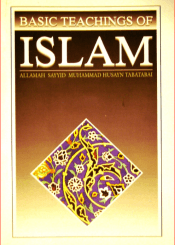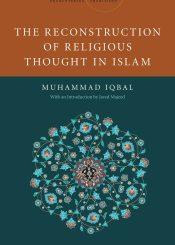Worship and Prayer
Worship and Prayer

0 Vote
205 View
By: Ayatollah Murtaza Mutahhari "Surely prayer keeps (one) away from indecency and dishonor andcertainly the remembrance of God is the greatest. ''(29:44) In Islam, acts of devotion, in addition to their pre-eminence, are a part of its educational program. By genuineness is meant being a goal of creation irrespective of the matter of human life in any other respect. The Qur'an says, "And I have not created jinn and mankind except to worship me '' (51:59) Worship is a means of the human being's proximity to God as well as one's true perfection. That is, that which is the manifestation of the human being's perfection is, at the same time, a goal in itself. It desires to train individuals morally and socially and so a means has been adopted which is most effective on human morals and spirit. It enables one to forget the self and self-interests. In social matters, the basic principle is justice, which is respecting other people's rights. This is the main difficulty of humanity in both morality and society. There is no one who is ignorant of morality and its necessity. The difficulty is practicing it. When a human being wants to put this principle into practice, that person is faced with interests on one side and morality on the other; truthfulness on one side and profit on the other. One should either resort to falsehood and treason in order to gain profit, or tell the truth and forsake profit. Here we see a man who speaks of justice, acting against ethics and justice in practice. The only thing that acts a support to the human being's morality and justice and enables one to forsake profit is faith. Faith in what? In justice and morality themselves. When a person believes in both justice and morality as something sacred? When a person has faith in the basis of sacredness namely God. So, a person is bound to both justice and morality to the same extent that one is bound to God, and has faith in Him. This is the problem of our time: That science is supposed to be sufficient for mankind. If we recognize justice and morality and act according to them, we can be both just and moral. But it is actually shown that when knowledge is separate from faith, not only is it not useful for morality and justice, it is harmful. As Sana'i, the poet, says, "When a thief carries a light, he can pick more choice objects." But with faith, both morality and justice will endure. In Islam, worship of God is not set up as something separate from morality and justice. To illustrate this point, here is a question. Where in the world have you seen a guilty person come forth voluntarily for punishment? A guilty person usually flees from justice. The only force that can make a human being voluntarily submit to punishment is faith. We see many examples of this in early Islam. Islam has envisaged punishment for all sins, such as drinking, adultery and theft. At the same time it says, "Punishments are abandoned with the slightest doubt." Islam does not compel a judge or governor to seek out a guilty person; rather it places an urge within a guilty person to come forward for punishment. This kind of thing often happened in the time of both the Prophet and Hazrat Ali. A man would come before them begging to be punished in order to purify himself. A man came to the Prophet, confessing adultery. In such matters the confession should be repeated four times to be credible. The Prophet said, "Maybe you mean you kissed her?" The man said, "No. It was adultery." 'The Prophet said again, "Perhaps you only gave her a pinch," hoping again that he would say,"Yes," and he would then be pardoned. But the man gave a negative answer. This dialogue went on until it was quite clear that adultery had been committed and the man begged for punishment in order to be relieved of punishment in the next world. There is another case of a woman who came to Ali, peace be upon him, and said, "Oh Commander of the Faithful, I am married and in the absence of my husband, I have committed adultery and am now pregnant. I wish to be purified from my sin." Hazrat Ali said, "One confession is not sufficient. It should be repeated four times." Then he said, "The punishment for the adultery of a married woman is being stoned to death. If you are dealt this punishment, what happens to the baby in your womb? The baby has done no wrong and must not be stoned. Go away until your baby is born." After a few months, the woman came again. This time with a baby in her arms and asked to be purified since the baby was horn. This was her second confession. Again Ail, peace be upon him, said, "We might stone you but this baby is not guilty. It needs milk and a mother to nurse it. So, go away now since the baby needs you." The woman returned home uneasily and after two years reappeared before the Imam, and said, "Purify me now as the baby has been weaned and is growing up." Ali, peace be upon him, said, "Go away. This child still needs a mother." The mother wept and said, "Oh God, I have confessed three times but the Imam has sent me away three times and refused to stone me. I cannot bear being polluted with sin." Source: alhassanain.com






